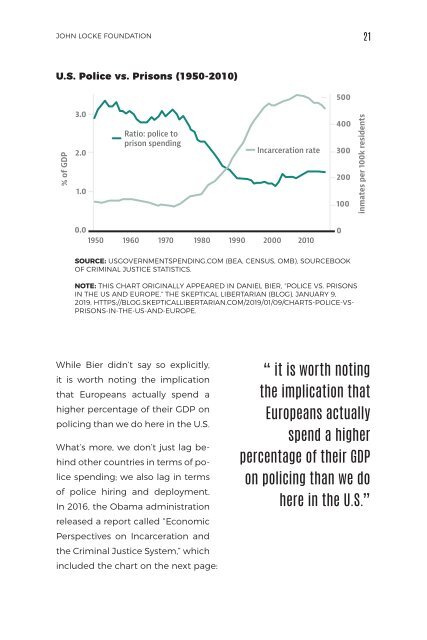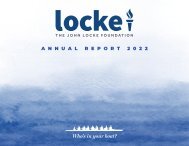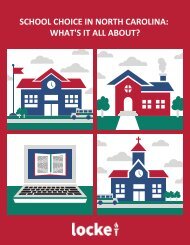Keeping the Peace Through Intensive Community Policing
As crime soars and the breakdown of public order takes its toll on our country, analysis from the John Locke Foundation signals it’s time to adopt a different approach to crime control, one that shifts the focus further upstream, looking at prevention models, rather than exclusively on punitive measures. In this July 2021 report, John Locke Foundation researcher and author Jon Guze explains that the current focus of catching, convicting, and punishing perpetrators after crimes have been committed has come with enormous economic and social costs. However, intensive community policing has proven successful at deterring crime and maintaining order, which leads to safer communities and fewer people living in poverty. Guze recommends a four-pronged plan to move forward with community policing: (1) hire more police officers (2) increase the pay for police officers (3) arm police officers with state-of-the-art training, direction, and support (4) deploy police officers as “peacekeepers” in communities that suffer most from crime and disorder.
As crime soars and the breakdown of public order takes its toll on our country, analysis from the John Locke Foundation signals it’s time to adopt a different approach to crime control, one that shifts the focus further upstream, looking at prevention models, rather than exclusively on punitive measures. In this July 2021 report, John Locke Foundation researcher and author Jon Guze explains that the current focus of catching, convicting, and punishing perpetrators after crimes have been committed has come with enormous economic and social costs.
However, intensive community policing has proven successful at deterring crime and maintaining order, which leads to safer communities and fewer people living in poverty. Guze recommends a four-pronged plan to move forward with community policing:
(1) hire more police officers
(2) increase the pay for police officers
(3) arm police officers with state-of-the-art training, direction, and support
(4) deploy police officers as “peacekeepers” in communities that suffer most from crime and disorder.
Create successful ePaper yourself
Turn your PDF publications into a flip-book with our unique Google optimized e-Paper software.
JOHN LOCKE FOUNDATION<br />
21<br />
U.S. Police vs. Prisons (1950-2010)<br />
500<br />
% of GDP<br />
3.0<br />
2.0<br />
1.0<br />
Ratio: police to<br />
prison spending<br />
Incarceration rate<br />
400<br />
300<br />
200<br />
100<br />
inmates per 100k residents<br />
0.0<br />
1950 1960 1970 1980 1990 2000 2010<br />
0<br />
SOURCE: USGOVERNMENTSPENDING.COM (BEA, CENSUS, OMB), SOURCEBOOK<br />
OF CRIMINAL JUSTICE STATISTICS.<br />
NOTE: THIS CHART ORIGINALLY APPEARED IN DANIEL BIER, “POLICE VS. PRISONS<br />
IN THE US AND EUROPE,” THE SKEPTICAL LIBERTARIAN (BLOG), JANUARY 9,<br />
2019, HTTPS://BLOG.SKEPTICALLIBERTARIAN.COM/2019/01/09/CHARTS-POLICE-VS-<br />
PRISONS-IN-THE-US-AND-EUROPE.<br />
While Bier didn’t say so explicitly,<br />
it is worth noting <strong>the</strong> implication<br />
that Europeans actually spend a<br />
higher percentage of <strong>the</strong>ir GDP on<br />
policing than we do here in <strong>the</strong> U.S.<br />
What’s more, we don’t just lag behind<br />
o<strong>the</strong>r countries in terms of police<br />
spending; we also lag in terms<br />
of police hiring and deployment.<br />
In 2016, <strong>the</strong> Obama administration<br />
released a report called “Economic<br />
Perspectives on Incarceration and<br />
<strong>the</strong> Criminal Justice System,” which<br />
included <strong>the</strong> chart on <strong>the</strong> next page:<br />
“ it is worth noting<br />
<strong>the</strong> implication that<br />
Europeans actually<br />
spend a higher<br />
percentage of <strong>the</strong>ir GDP<br />
on policing than we do<br />
here in <strong>the</strong> U.S.”











